Following my last forays to Sculpture in the City and Covent Garden’s mass balloon invasion, I was intrigued to hear that trees had taken root overnight in the Royal Academy’s majestic Annenburg Courtyard. Providing much needed solace in the traffic clogged chaos of Piccadilly, Ai Weiwei’s Tree also offers the perfect lunch break sanctuary away from the stress of the working day. Intrigued, I slipped away from my desk to go and explore.
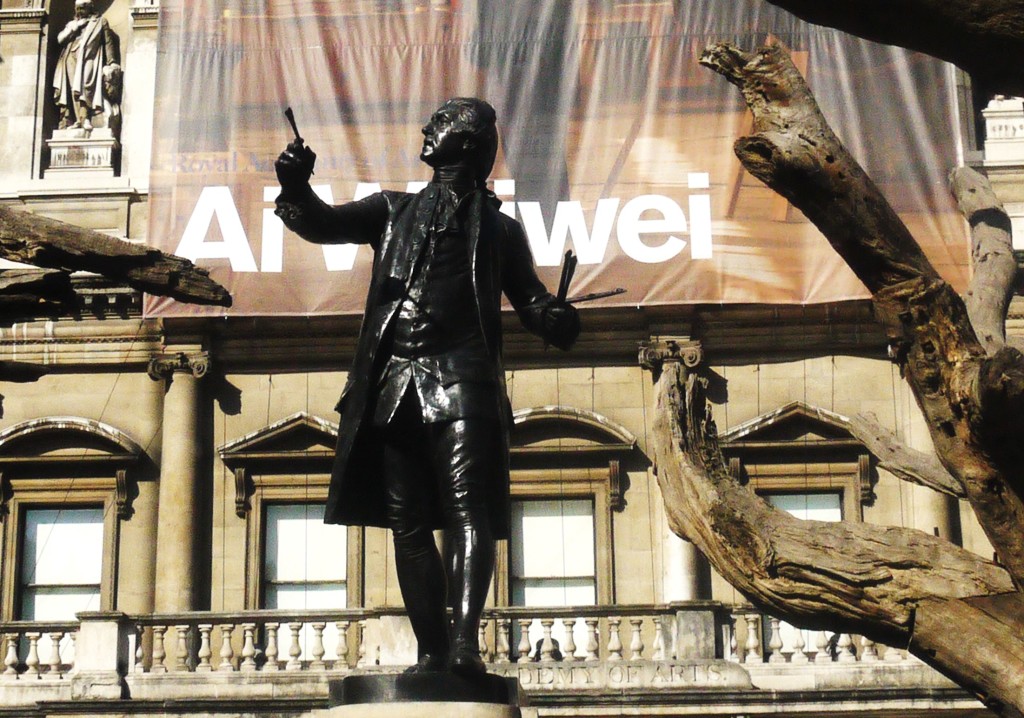
Office Breaks Ai Weiwei Tree
The eight single trees silhouetted through the Royal Academy’s grand archway are striking in their stark simplicity with the intertwined branches conveying a feeling of shelter and protection. As the largest single gathering of Ai Weiwei’s Tree – the installation was brought to the UK with the generous support of Kickstarter donations totalling over £120,000.
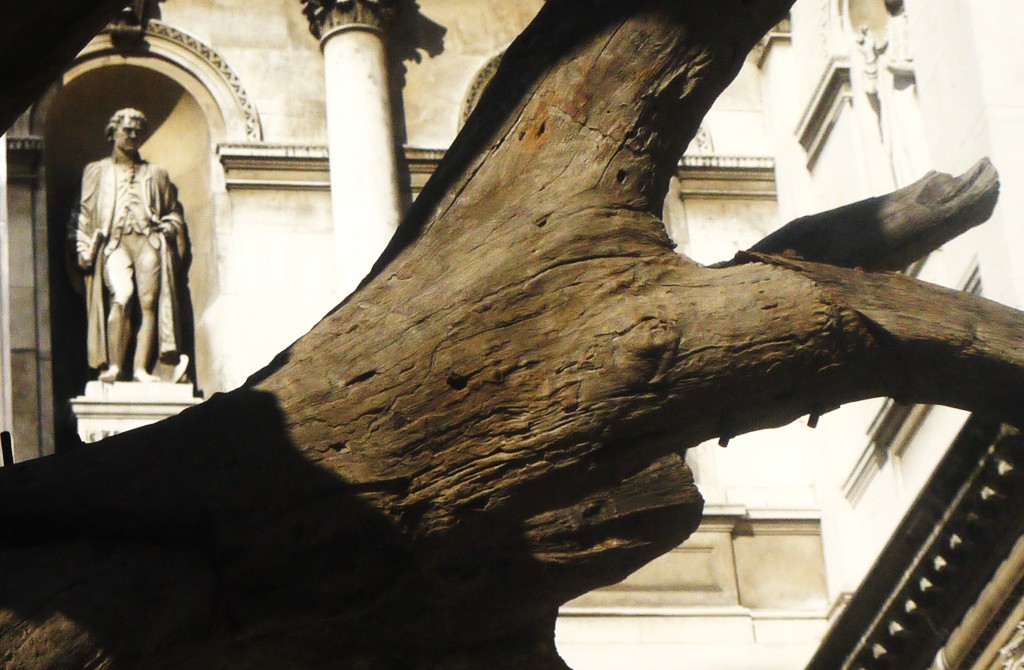
Office Breaks Ai Weiwei Tree
While appearing entirely natural from a distance, the trees are in fact bolted together from recycled dead tree parts, sourced from the mountains of rural China. Brought back to life with the help of industrial bolts, mortise and tenon joins, the trees are a symbol of the modern China’s ethnically diverse population brought together to form One China – a state-sponsored policy aimed at protecting and promoting China’s sovereignty and territorial integrity.
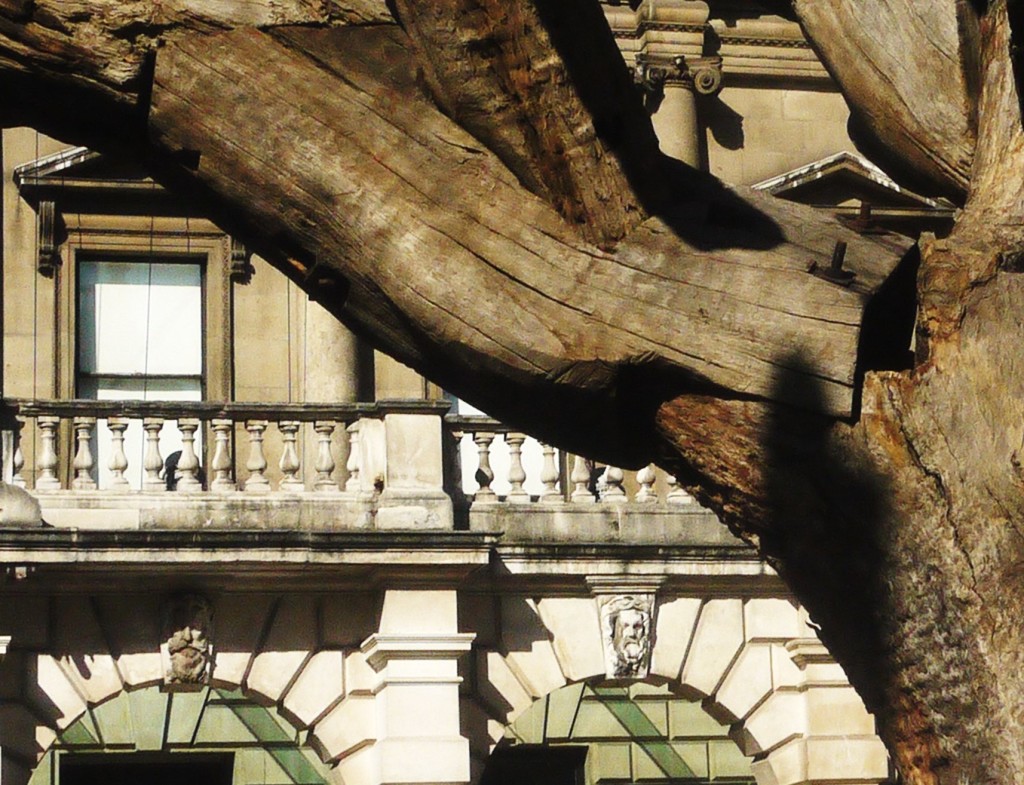
Office Breaks Ai Weiwei Tree installation
In the sharp autumn sunlight, the trees’ rich palette of yellow, rust and mahogany tones cascade across the courtyard – giving the scene a Hans Christian Anderson quality. – heightened by the cooing of fat wood pigeons above me who appear to delight in the dead trees.
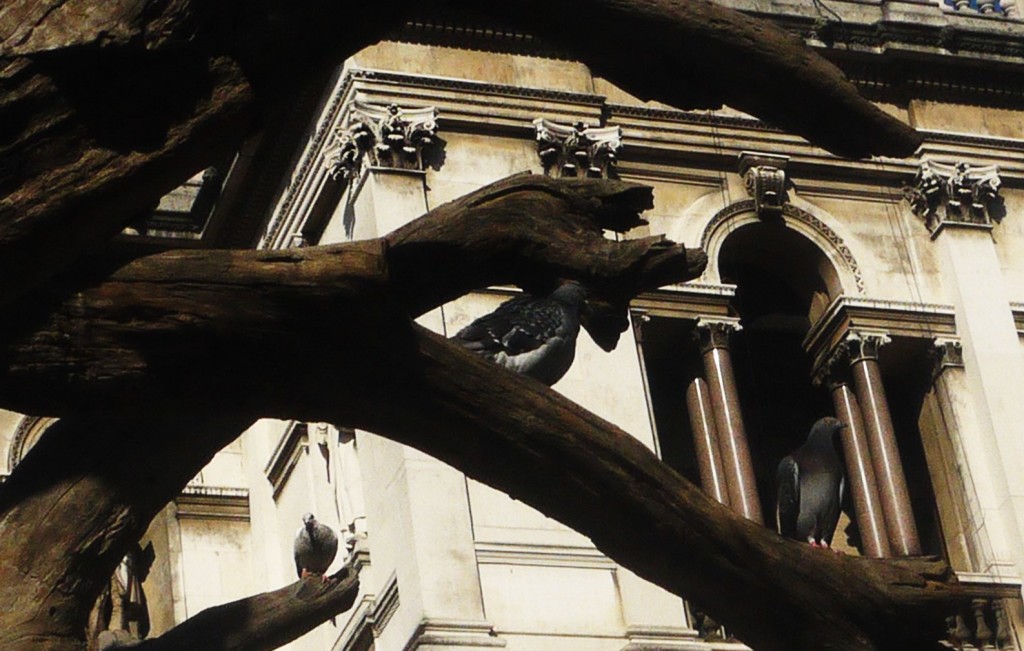
Office Breaks Ai Weiwei Tree
Placed incongruously below the trees is a black, marble couch – providing a nod to the Ming dynasty’s vogue for fashioning commonplace objects from luxurious materials.
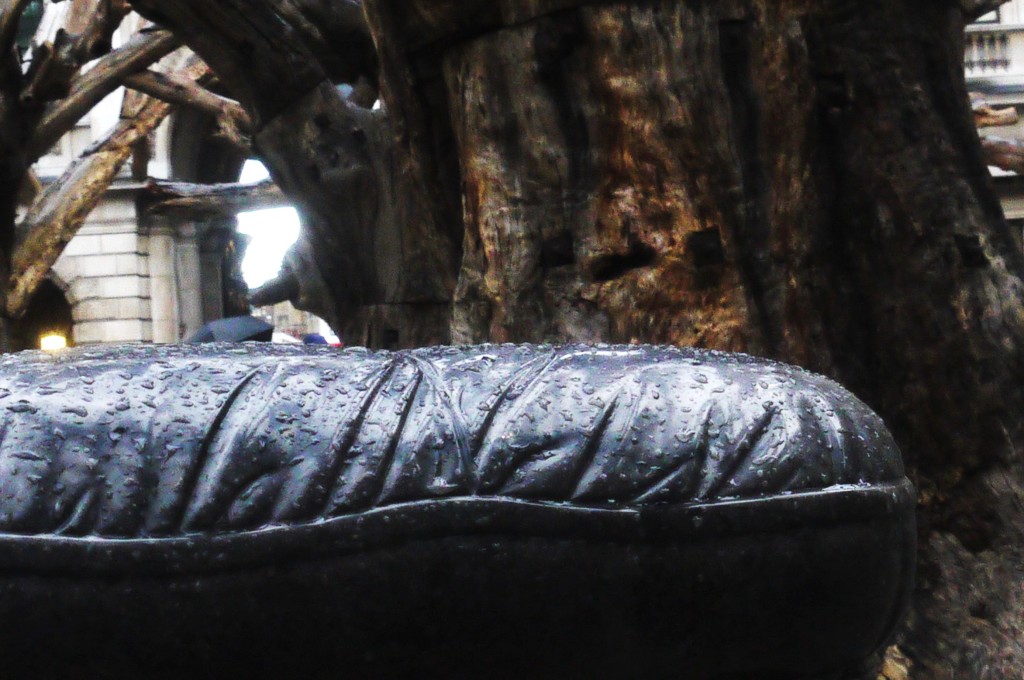
Office Breaks Ai Weiwei Tree installation
Perched above the tree tops is the dark figure of Joshua Reynolds, the Royal Academy’s first director who appears delighted with the sudden attention thrust upon him.
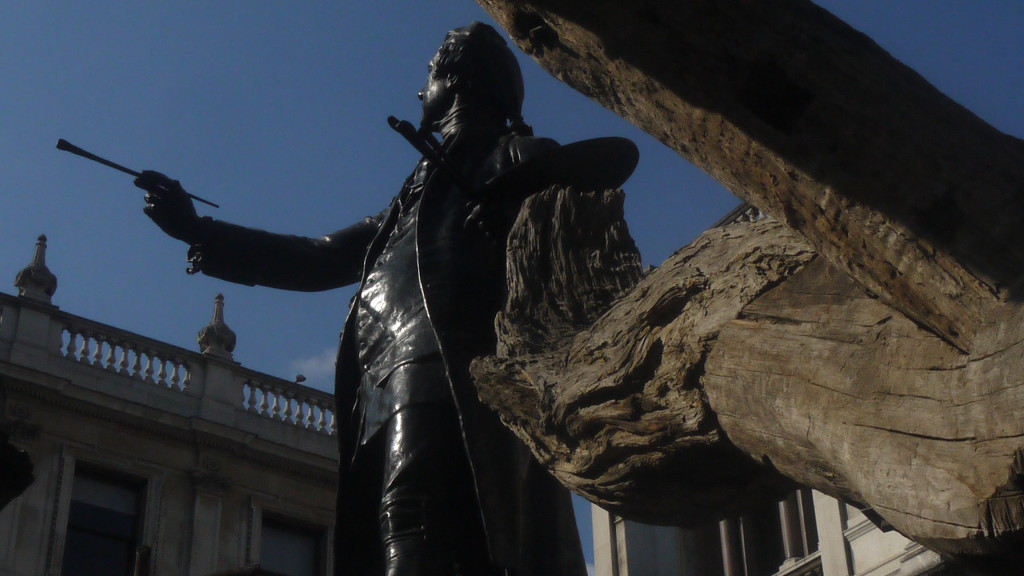
Office Breaks Statue of Joshua Reynolds
The trees have an endearingly tactile quality to them and while I draw the line at indulging in a spot of tree hugging, (this is central London after all), I can’t resist reaching out to touch the bark. Feeling solid and reassuring under my touch, it’s impossible to believe they’re dead.
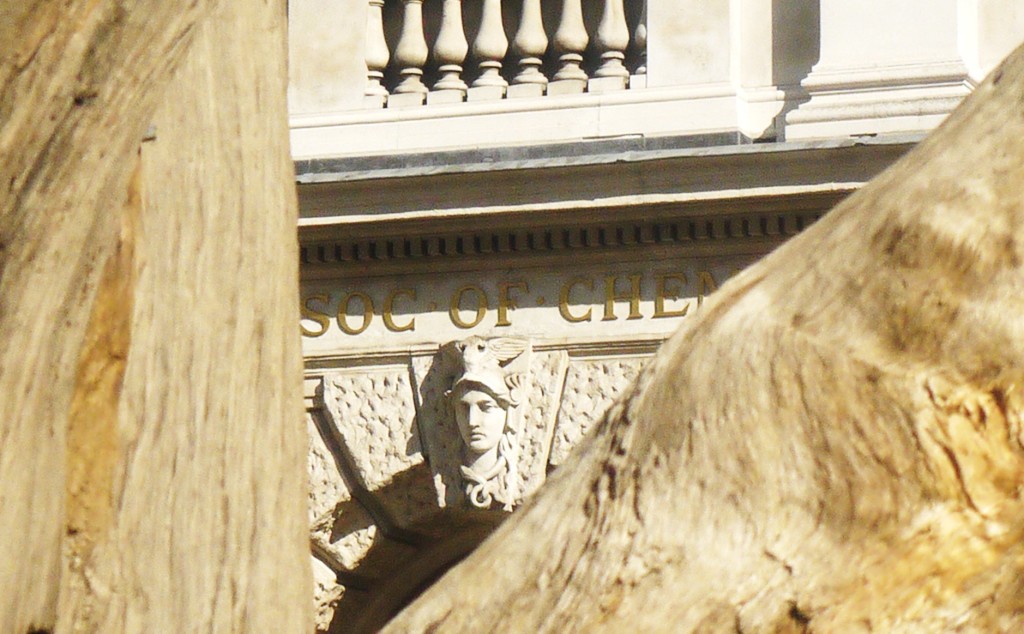
Office Breaks Ai Weiwei Tree
The installation is both striking and calming and whets the appetite for the further curiosities to be discovered in Ai Weiwei’s landmark exhibition – available at the Royal Academy from 19 September – 13 December.
Advance booking recommended. (Adult tickets: £17.60.)
